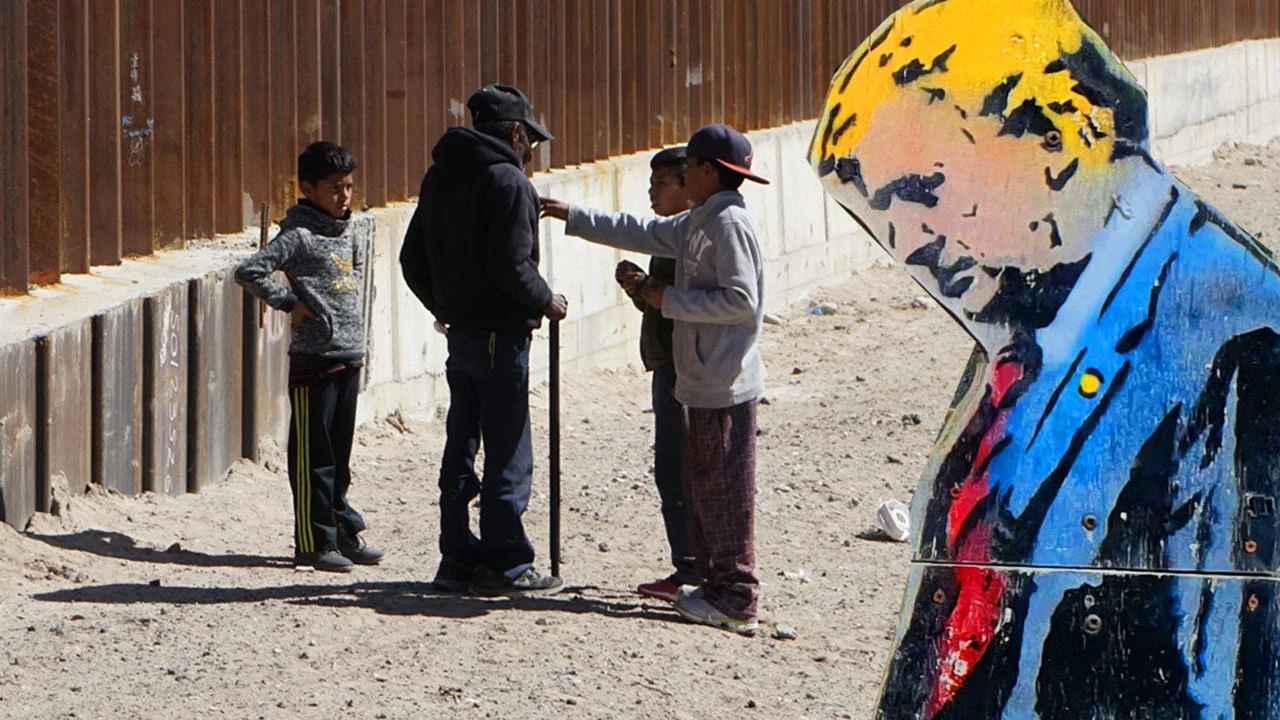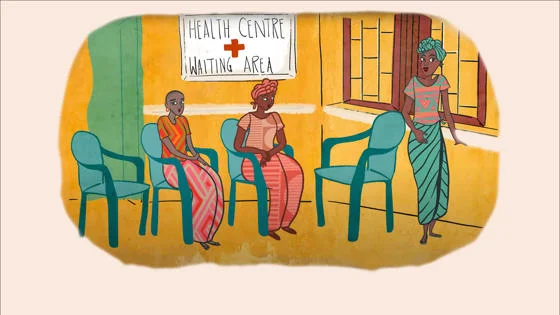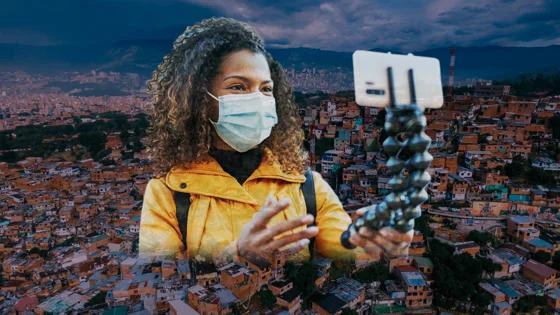The power of images: understanding the importance of pictures in politics

Contents
When was the last time you cried while watching a film, felt connected to someone by looking at a photograph or laughed during a play?
Visual media – films, images, performances – can shape our view of the world and impact our emotions in profound ways. Just think of the iconic image of the "tank man", a lone protester standing in front of a line of tanks in Tiananmen Square, Beijing in 1989. An image viewed by many as speaking truth to power. Or the tragic photograph of drowned toddler Alan Kurdi, on a beach in Turkey, during the Mediterranean migration crisis in 2015, a picture which some believe provoked Angela Merkel to allow over one million refugees into Germany.
This idea that images and other visual media have a critical role in global policy, is central to work by LSE academic Professor William A Callahan. In his recent book Sensible Politics: visualising International Relations, Professor Callahan argues that the power of visual media and emotion is often left out of areas like academia and politics.
"When we watch TV or films, we see visual politics all the time through non-verbal communication. That’s what I try to explore in the book: this thing we take for granted in everyday life, but which is not really understood in academic research. I explore how we need to look at politics and international relations in terms of emotion and affect," he explains.
We need to deal with ... [populists like Trump and Bolsonaro] in the same space they are operating on.
Manipulation, propaganda and the importance of emotional impact
It’s common in the social sciences to stress that we need to be fully rational. This can lead to a wariness of emotions because of concerns they can be used to manipulate us for nefarious purposes, such as with propaganda. While Professor Callahan acknowledges these concerns, he believes that if we really want to challenge and change things in the world, we need to deal with them on an emotional level as well as a rational one, especially when engaging with populists like Donald Trump and Jair Bolsonaro, who operate by appealing to emotion. "We need to deal with these people in the same space they are operating on," he says.
To highlight the importance of visual media and emotion to his students, Professor Callahan co-teaches a class on Visual International Politics with Darren Moon from LSE’s Eden Centre. As part of the class, students make films and, while learning the technical aspects of filmmaking, also learn new ways of understanding the world, away from the usual academic activities of reading articles and dealing with theories.
With this film… I try and get beyond this notion that walls and borders are either totally good or totally evil and try and appreciate that the wall itself matters.
Great Walls: filmmaking and the value of visual analyses in academia
It was after taking a filmmaking class himself, while working at Manchester University several years ago, that Professor Callahan first became interested in making short films. Although he had studied visual politics since his early career, he hadn’t previously worked on the other side of the camera.
"I thought I would be able to interpret films better if I knew how they were made," he explains. "What really blew my mind was that it showed me a better way of understanding things. I had been trained as a graduate student in discourse analysis and turning everything into text. What I found was that you can analyse things visually or in a multi-sensory way and can create meaning and feeling without using words."
Professor Callahan has now made several films as part of his work. One of which looks at Great Walls and explores people’s relationships with walls and why many hate some walls, such as Trump’s wall, but love others, such as the Great Wall of China.
The film centres on interviews with people about their personal experiences of the Great Wall and what it means to them. "What I try to do with this film is look at things in multiple ways that often contradict themselves and move away from ideology towards experiences. I try and get beyond this notion that walls and borders are either totally good or totally evil and try and appreciate that the wall itself matters."
As an expert in Chinese politics, an important aspect of Professor Callahan’s work is to de-centre Western and Eurocentric ways of doing things and move away from understanding everything in terms of Europe and North America. "With the Great Walls film, I try to develop Chinese concepts to understand American policy and throughout the book I treat the Global South not just as a site of examples but as a site of concepts," he explains.
Revealing and concealing
We need to embrace this moment of multi-sensory media to do new things and engage in politics in a multi-sensory, fun, and interesting way.
Now, Professor Callahan is exploring the imagery around wearing masks. Often seen as problematic before the pandemic, as they were viewed as concealing something, masks now have more of a positive association with public health campaigns.
One example he uses to illustrate this is the situation in Hong Kong where the wearing of masks was outlawed in 2019 during the democracy protests, as many protesters wore them as protection from tear gas but they also had the benefit of concealing one’s identity. After the start of the pandemic, in Spring 2020, the Hong Kong government brought in a new law, making mask-wearing compulsory.
"The interesting thing here is that they didn’t get rid of the previous law, so you were simultaneously required to wear and not wear a mask!" says Professor Callahan. "To me, what’s interesting is how this simple object is manipulated, it’s about revealing and concealing and is deeply political."
Going forwards, Professor Callahan recently won a research grant from the British Academy to study "Chinese Global Orders" as part of a team of 20 researchers in the humanities and social sciences. In this three-year project, he will examine Chinese images of foreigners in art, photography, and mass media.
With the world increasing moving away from text and towards images and visual media with the invention of TikTok and other social media, what does Professor Callahan see for the future? "I’m still an optimist," he laughs. "I think we need to embrace this moment of multi-sensory media to do new things and engage in politics in a multi-sensory, fun, and interesting way."
Professor William A Callahan was speaking to Charlotte Kelloway, Media Relations Manager at LSE.
Download a PDF version of this article




